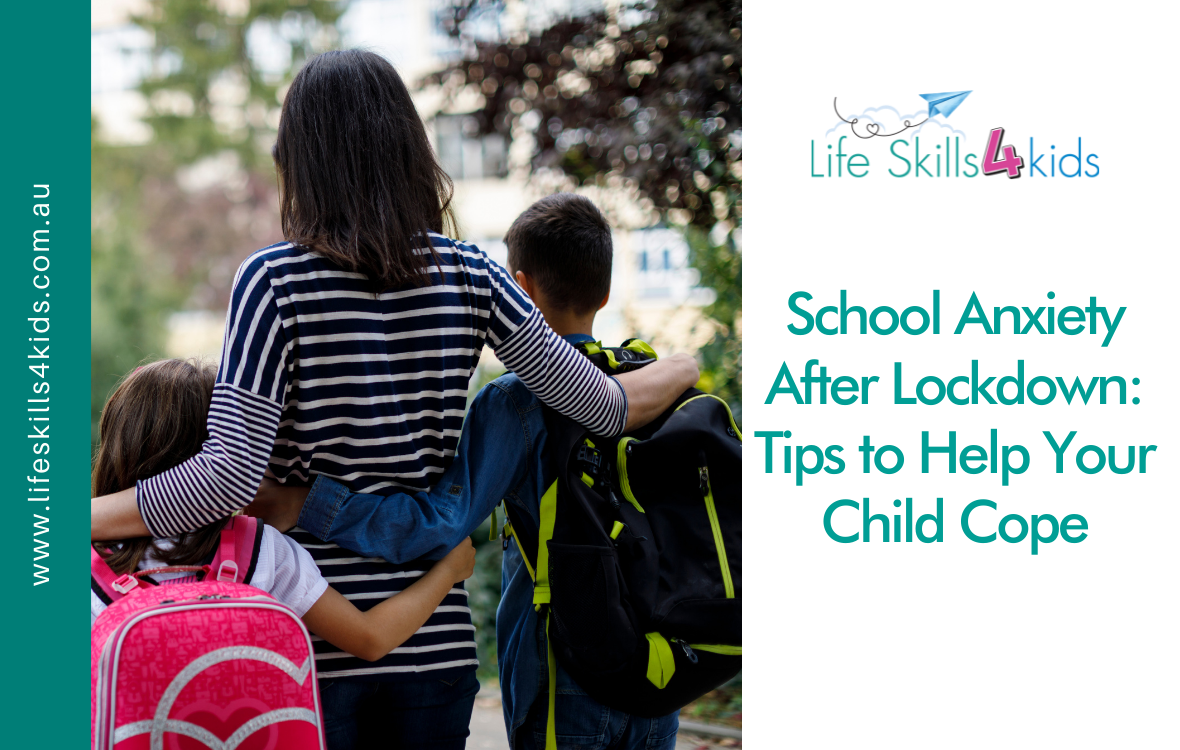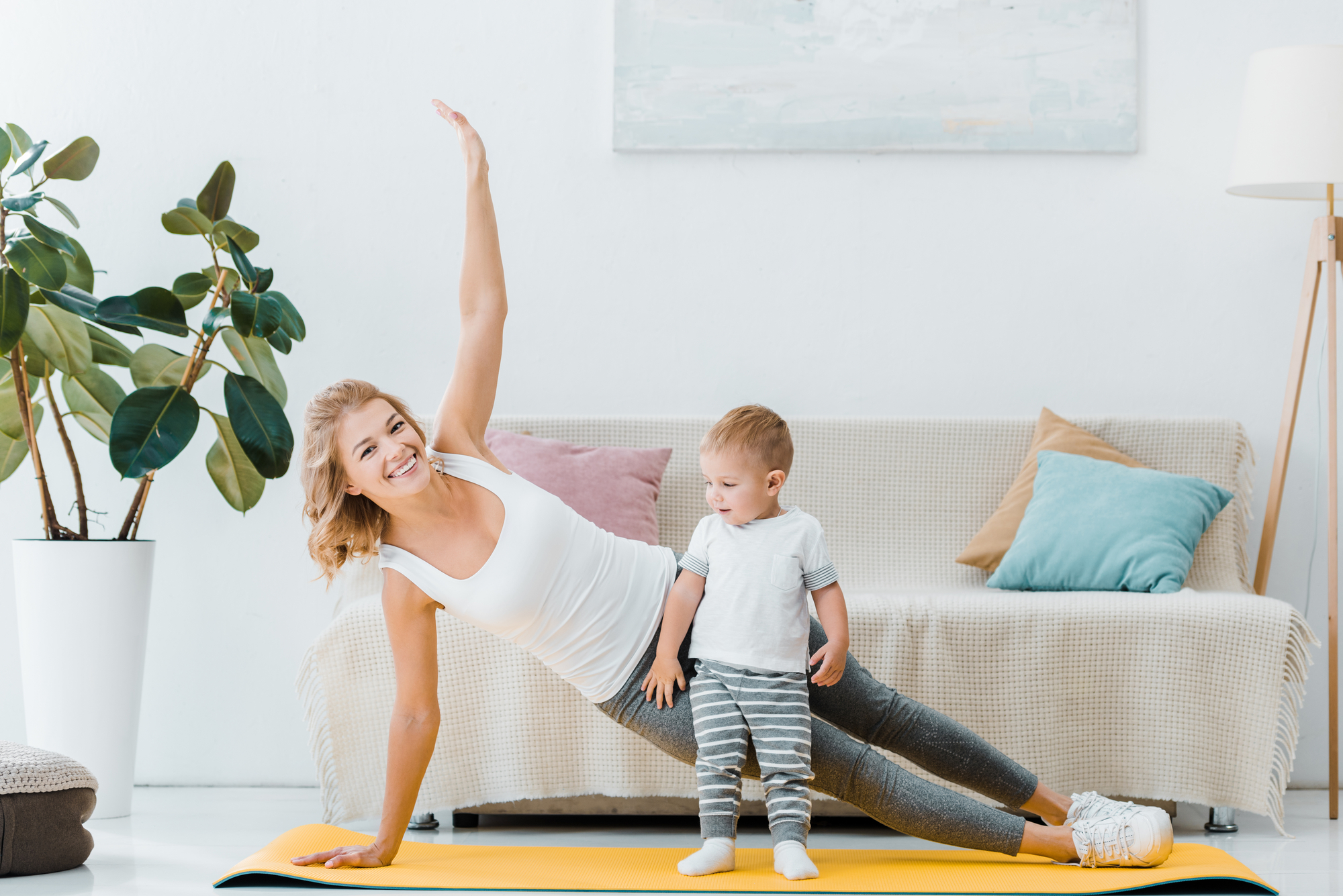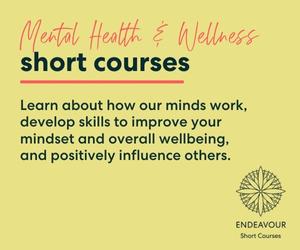By Endeavour College Mental Health Instructor, Nutritionist, Mum and Eating Disorder Advocate Lexi Crouch who designed a short course on mental wellness for Endeavour Short Courses
Life changes when you become a mum. All of a sudden there is another person to care for which can mean self-care falls by the wayside. It’s hard to fit even the most basic hygiene into a day, let alone exercise, mindfulness, sleep and healthy homecooked meals.
But it’s important for mums, especially busy, juggling mums, to look after their physical and mental health so they can take care of themselves and their little ones.
Whether it’s some incidental movement or a few deep breaths, here are seven sneaky ways to squeeze self-care into even the busiest of days.
-
Check-in with yourself
The first step in any kind of care routine is to recognise what you need. This requires a mindful approach to check in with ourselves and reconnect to see where we’re at. There are many distractions in our busy lives and we’re often running on autopilot to juggle all our responsibilities. So, take a moment, just a quick moment, and take some deep breaths. Quiet the mind and ask yourself what you really need right now. Check in with how you’ve been feeling over the last couple of days – is there a running theme like being tired, irritable, or maybe pushing yourself too hard? If so, what could be the antidote – do you need to rest, or maybe there’s an underlying emotion that is asking for your attention? First, take the time to recognise, and the next step is even more important – to accept without judgement, then to act on it and remember to be compassionate. Self-compassion is about being kind to yourself and accepting negative emotions, rather than engaging in negative self-talk, or being self-critical.
-
Get moving!
Movement, in whatever form works for you, is a celebration of your body and all it is capable of. What small way could you start moving? Research has shown us that even walking 30 minutes a day can have massive positive impacts on both our mental and physical health. Instead of holding mothers’ group at a café, you could meet at a park and try some outdoor exercise or go for a walk with bub in a pram or carrier. Incidental exercise, like taking the stairs over lifts, or deliberately parking further away from the shops, work or school, all adds up. The aim is to move as much as possible to reach the goal of two and a half hours of exercise a week as movement helps keeps our body and mind strong and makes us feel good.
-
What’s on your plate?
We need nutritious food to sustain us and help us thrive. In our busy lives it’s often the one area that can be overlooked for the sake of ease and timing, but good nutrition has such a massive impact on our long-term health, it’s worth investing more time and attention into food choices. Try spending a couple of hours on a Sunday prepping for the week ahead by making a soup, stew or casserole that can span several meals. Packing in delicious real foods like fruit (rock melon and plums are some yummy options) veggies, wholegrains (think wholemeal sourdough bread, or seedy crackers and hummus for a snack) and good protein sources like fish, eggs, meat and nuts is a good way to “crowd out” the junk food. But also remember, it’s ok to eat chips, chocolate and sweets sometimes if you feel like it – ditching diet rules is helpful for your mind and body. And don’t forget to drink around two litres of water a day to stay hydrated and keep energy levels up.
-
Sleep hygiene
While it’s not always easy getting a good night’s sleep with children around, sleep is key to our wellbeing. Sleep quality supports our health and wellbeing in many ways and by practicing ‘sleep hygiene’, which refers to sleep habits, behaviours and environmental factors, small adjustments can lead to improved sleep. The quality of sleep affects many other self-care behaviours so it’s an important part of overall wellness. Regularity in sleeping patterns helps your body adjust to a healthy sleep/wake rhythm. An uncluttered, dark bedroom that’s free of electronic devices lets your subconscious mind know that the bedroom is primarily for sleeping. Calming colours, fresh air, and clean bed linen can support a good night’s sleep. Try some breathing exercises, a bedtime tea, or some yoga and light stretching to unwind and set the mind and body up for sleep. And to ensure the body has digested dinner before lying down, leave at least two hours between your last meal and bedtime.
-
Feed your spirit
Feed your spirit in whatever form works for you that is nurturing, restorative and impactful on your sense of wellbeing. Small amounts practiced regularly are better than none at all, so take small steps to begin any new routine. The 5% principle is so helpful here. Making just a 5% change in some way will add up over time. All self-care is healthiest when it includes a focus on giving and supporting others. It’s like we must first turn inwards, to feed our own body and spirits, to give more fully to those around us – whether that be family, friends, work or social connections. Self-care is not selfish as a mum, in fact it is essential – when we give to ourselves we can give fully to our loved ones.
-
Be thankful
Gratitude involves being thankful and able to show appreciation for and to return kindness, as well as the ability to appreciate the positive aspects of our lives. Gratitude can help to make us more emotionally balanced, happier, and have a more positive outlook on life. In addition to helping you balance your emotions and grow your social connections, practicing gratitude can improve your physical wellness as well. Practicing gratitude can be as simple as paying a compliment or saying thanks to starting each day with gratitude by thinking of something to be grateful for or starting a gratitude journal.
-
It’s ok to ask for help
Mental health is at the centre of everything – our emotional, psychological, and social wellbeing. We know that taking care of our mental health is important, but something that’s just as important is knowing when to get some help. If you’re feeling down or struggling with your mental health, you can reach out to someone you’re comfortable talking to whether it’s a friend, a professional or any of the resources available online, in person via email, or phone, including Beyond Blue, Lifeline and Headspace. You are not alone – there are people who want to listen to you and try to help.
Find out more about how to access support, practice self-care, build resilience and de-stress, in short online courses on mental health and wellness at endeavourshortcourses.edu.au









